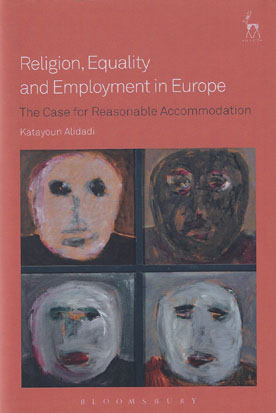
Using a multi-layered legal comparative and socio-legal contextual approach, this book addresses the extent, and through which legal mechanisms, the religion or belief of private-sector employees is protected in the workplace in Europe.
In so doing, it considers the extent of convergence or divergence between European countries (as evidenced by the three country studies under purview) when it comes to pervasive issues of the treatment and legal protection of religiously distinct dress at work, conflicting religion-worktime demands, job duties which conflict with religious beliefs or practices and other work-related challenges.
It constitutes an original and in-depth study of human rights and anti-discrimination law protections for employees' religion or belief at the international, European supranational and domestic levels.